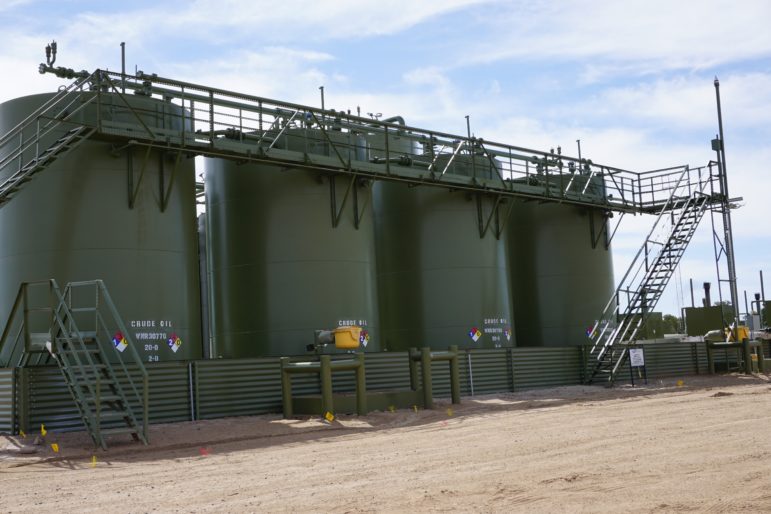
The Senate passed a House bill last night on a 32:6 vote dealing with wastewater from oil and gas production, after the Judiciary committee amended it to grant the Oil Conservation Division authority to issue fines and fees.
Now, if the House agrees with the amendments and the governor signs it, the OCD will, for the first time since 2009, be able to issue fines for violations of New Mexico’s Oil and Gas Act. The Senate amendments pick up an effort made by sponsors of SB 186, which was sent to Senate Finance and has yet to see a hearing.
Initially, HB 546, titled the “Fluid Oil and Gas Waste Act,” sought to address questions around managing the estimated 1 billion barrels of water that emerge with oil through production.
Companies had cited concerns over jurisdiction, liability and potential to retain proceeds among the reasons just 8 percent of water that comes out of oil and gas activities was being reused, Jennifer Bradfute, an attorney with Marathon Oil, told House Energy, Environment and Natural Resources committee members when that bill was first heard.
That water is considered waste, and commonly called “produced water.” It can be cleaned and reused in oil and gas operations, but building those plants costs upwards of $60 million, so companies want to be clear on New Mexico’s rules before investing, Bradfute said. She listed Oil Conservation Division numbers that show 1,000 disposal wells, and just 100 water recycling facilities.
“What we’re looking at doing is clarifying the custody, clarifying the responsibility and control of that fluid oil and gas waste … to unleash that creativity and innovation and scalability to frankly move away from the use of fresh water in oil and gas drilling operations,” Rep. Nathan Small (D-Las Cruces) told committee members at the same hearing. Bradfute sat as his expert witness. Sponsors also included Representative Rod Montoya (R-Farmington) and House Speaker Brian Egolf (D-Santa Fe).
Comments from the Energy, Minerals and Natural Resources Department submitted for the Fiscal Impact Report observed that the growth in oil production in the state has corresponded to an increase in produced water that needs to be addressed. For every barrel of oil produced, five to seven barrels of produced water also emerge from the ground. In 2018, that totaled more than 1 billion barrels. Most of that water is then injected into the ground.
The bill passed the House unanimously on March 8.
Then, it headed just to Senate Judiciary, where amendments were added late Tuesday granting power to the Oil Conservation Division to issue fines and fees for the first time since a 2009 court decision declared the OCD did not have that authority. That power has since rested with the state attorney general, and several years have seen zero penalties assessed for violations of the Oil and Gas Act. At the same time, an Earthworks report found, oil and gas violations and spills have nearly doubled over the last decade.
The bill set penalties at $2,500 per violation per day, capped at no more than $10,000 per day. Fines totaling more than $200,000 would have to be issued by a court. That trigger has been a sticking point for the New Mexico Oil and Gas Association. The bill also outlines criminal penalties to include fines of $5,000 or imprisonment for three years, or both, for knowingly or willingly violating the Oil and Gas Act.
A requirement around annual reports that would increase transparency on spills and violations also made the transfer.
“We would have preferred this bill followed the examples of the other agencies in New Mexico, as well as in neighboring Texas and Colorado, by not including an administrative cap on penalties — but restoring New Mexico’s ability to protect its health and resources from oil and gas pollution is a critical accomplishment,” Jon Goldstein, director of regulatory and legislative affairs for the Environmental Defense Fund, said in a press statement.